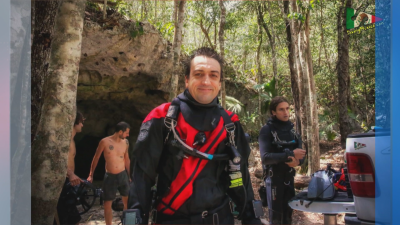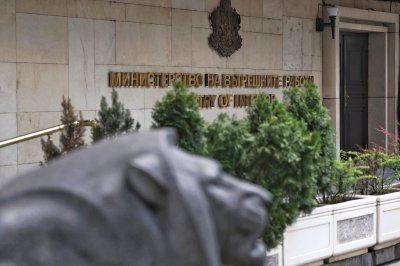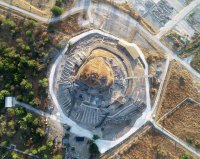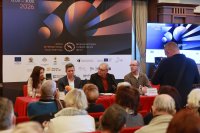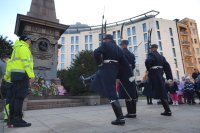The Bulgarian government is allocating BGN 350,000 for rescue archaeological excavations in the ancient city of Heraclea Sintica, located near Petrich, Southwestern Bulgaria. A team of archaeologists has begun reasearch at the site ahead of the upcoming construction of the Bulgaria–Greece gas pipeline. Unfortunately, parts of the area have already been damaged in recent years by treasure hunters.
The expansion of the gas transmission network is set to begin in a month. So far, archaeologists have uncovered an early medieval dwelling, and they expect to discover several necropolises.
Prof. Lyudmil Vagalinski, head of the excavations, explained:
“We take the materials, we draw and document them, and leave everything to the museum. This shouldn’t interfere with the construction, unless we find something massive—like a tomb, especially one with murals. If the pipeline poses a threat, we’ll need to take protective measures. But if the structure is deeper than where the pipe will go, it can be preserved in place—covered and protected by the soil above.”
German archaeologist Svenja Simon added:
“You can see the ancient city. It allows people to visualize what once existed, which is often difficult for those unfamiliar with archaeology.”
According to estimates, around 30,000 people in Bulgaria rely on treasure hunting as a means of livelihood. The necropolises of Heraclea Sintica were among the wealthiest in antiquity, making the site particularly attractive for illegal activity.
Prof. Lyudmil Vagalinski, head of the excavations: "Treasure hunters are a plague on Bulgarian archaeology. They destroy historical memory and vital information daily. We lose money, but more importantly, we lose irreplaceable history—like learning about a person’s status, diet, or even where they lived in early childhood through skeletal analysis. That knowledge is lost forever once the site is disturbed.”
Russian archaeologist Arina Kurzu reflected on the deeper significance of their work:
“Preserving history helps us stay connected to our roots. Systematic and professional research gives us the broader picture of our past.”
Last year, the ancient settlement attracted hundreds of tourists from all over the world because of the two statues that were discovered there. Archaeologists are hoping for a successful season in the coming months.
Last year, Heraclea Sintica gained international attention after two ancient statues were unearthed at the site, drawing hundreds of tourists from around the world. Archaeologists hope for another fruitful season in the months ahead.
A huge marble statue of a deity discovered by archaeologists in ancient city of Heraclea Sintica near Petrich
Archaeologists discover a second marble statue in the ancient city of Heraclea Sintica (see video and pictures)








 Чуй новините
Чуй новините Подкаст
Подкаст









